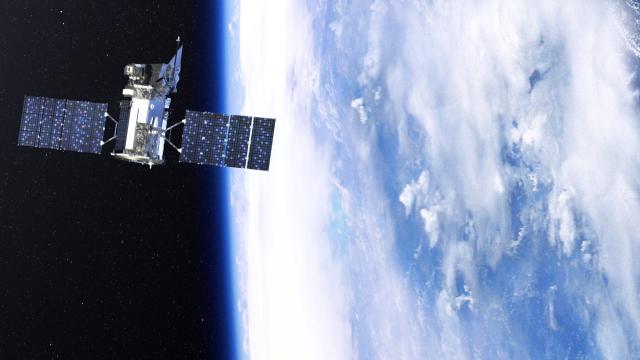As comforting as it can be to know you’re not the only person in the world who has desperately screwed up today, it can be, uh, pretty disconcerting to learn that NASA messed up way worse. As in, buying faulting rocket parts for two whole entire decades worse.
After the 2009 and 2011 failures of its respective Orbiting Carbon Observatory and Glory missions, NASA brought in the big guns — namely, their Launch Services Program and the Justice Department. The LSP got right down to business, searching to identify what went wrong with the launches so that those issues won’t be repeated in the future.
Initially, NASA acknowledged that the launches failed because the launch vehicle malfunctioned, CNET reports. The protective nose cones on the Taurus XL rockets failed to separate on command. But what NASA wanted to know was why.
As it turns out, the joint investigation between LSP and the Justice Department turned up a 19-year fraud scheme on the part of Sapa Profiles, the company that provided NASA with aluminium parts for the satellites.
Apparently, employees at the company pulled off an Aunt Becky-style scam. They’d doctor failing test numbers or violate testing standards so that they’d appear to have passed aluminium certifications when, really, their products were of inconsistent, poor quality. They then would provide their false certifications to their clients — NASA included. The whole scheme went on from 1996 through 2015.
It was something of a double-whammy in terms of motivation. Sapa Profiles wanted to earn money without having to spend anything on fixing quality. So, they encouraged employees to do whatever needed to be done with production-based bonuses.
As a result, millions of dollars in satellite equipment was too faulty to successfully complete a mission to space and was subsequently damaged. But, according to CNET, Sapa will make amends:
Sapa, which has since changed its name to Hydro Extrusion Portland, agreed to pay $US46 ($66) million to the US government and other commercial customers — which doesn’t even come close to the $US700 ($997) million NASA lost as a result of Taurus XL failures.
The fact that an important government agency responsible for sending human beings and high-tech equipment into space was so easily duped for so long by a deceptive company is pretty concerning.
On a slightly positive note, Sapa Profiles is no longer allowed to do any kind of business with the federal government. So, while we can hope they’ve started to change their business practices, there will at the very least be no more failed rocket launches on their behalf.
